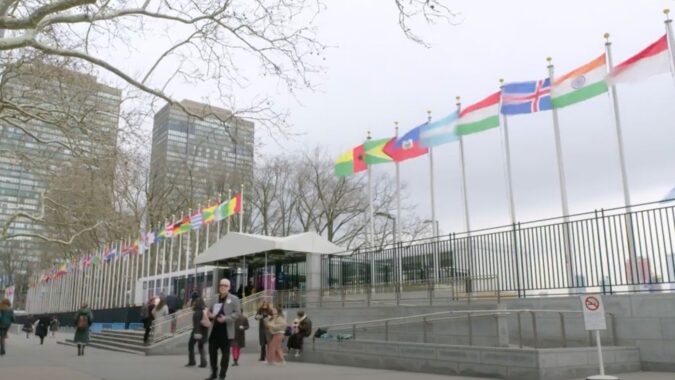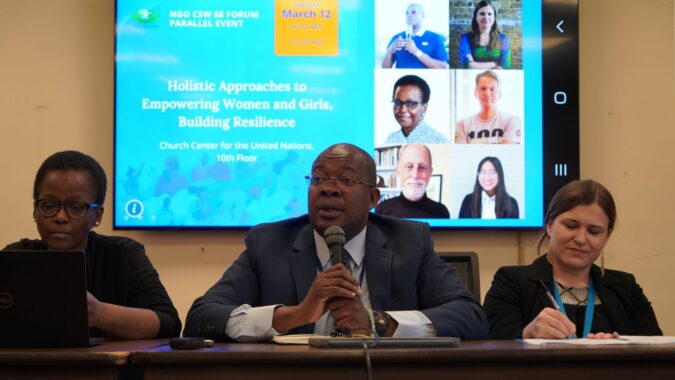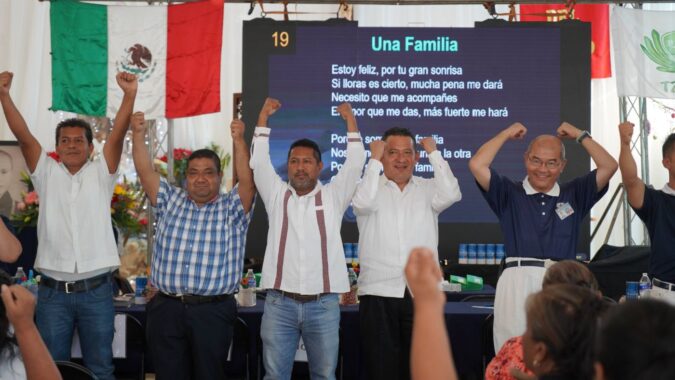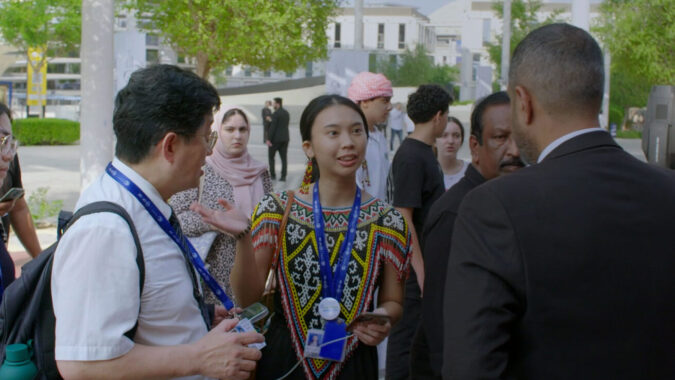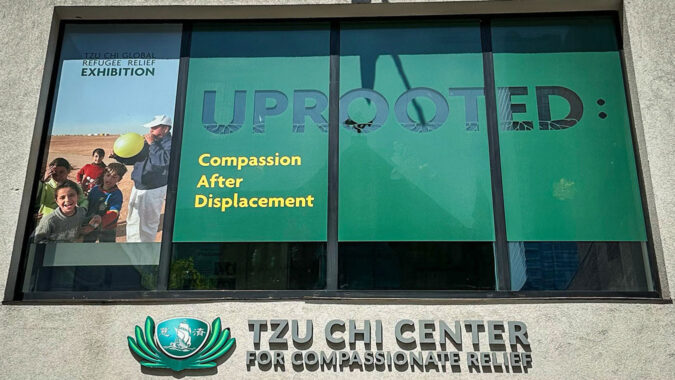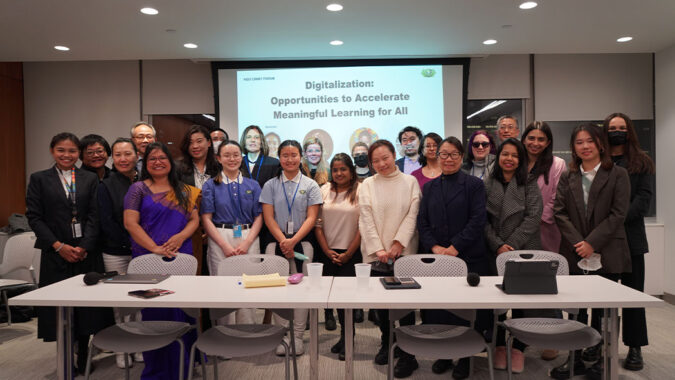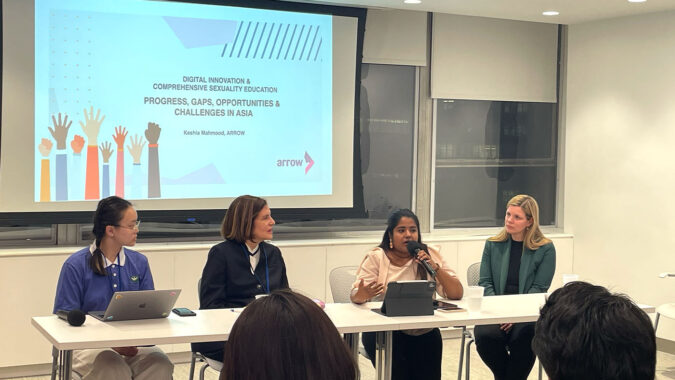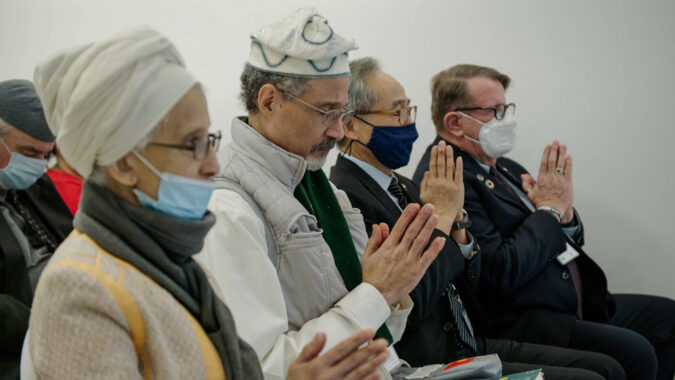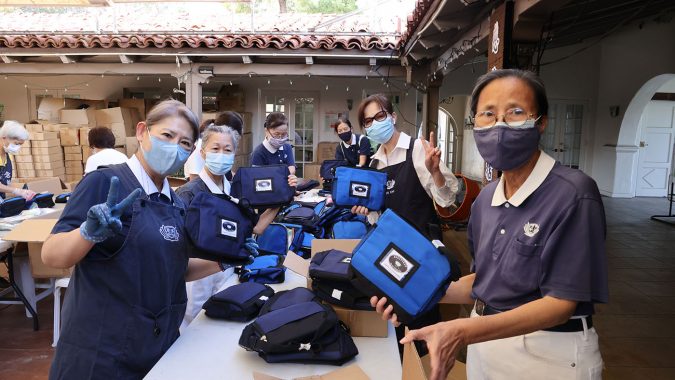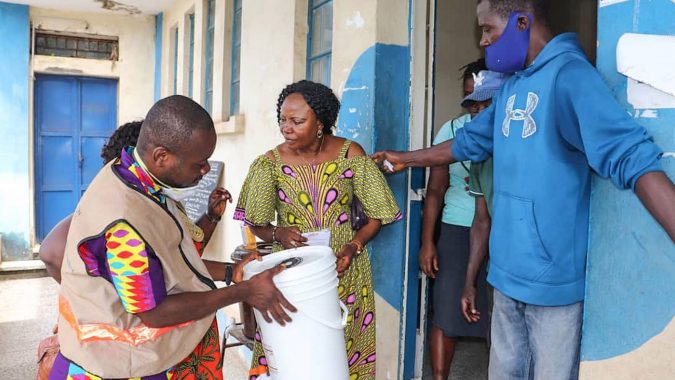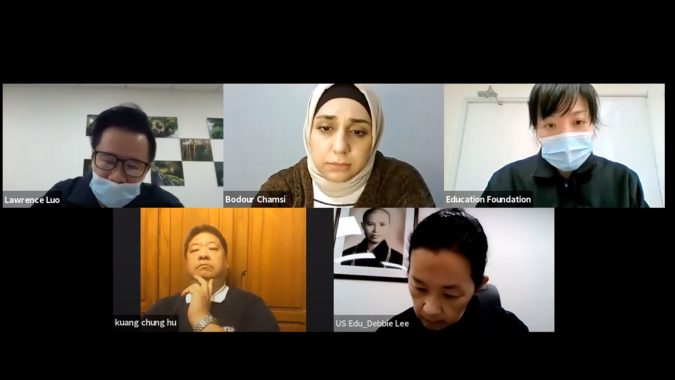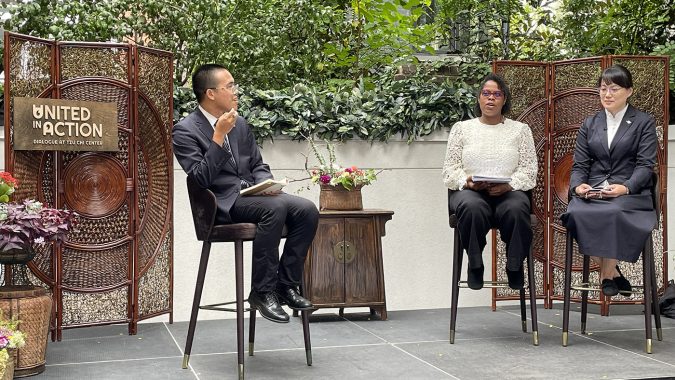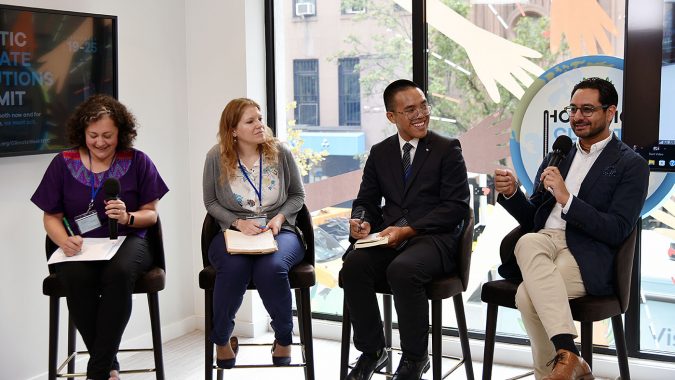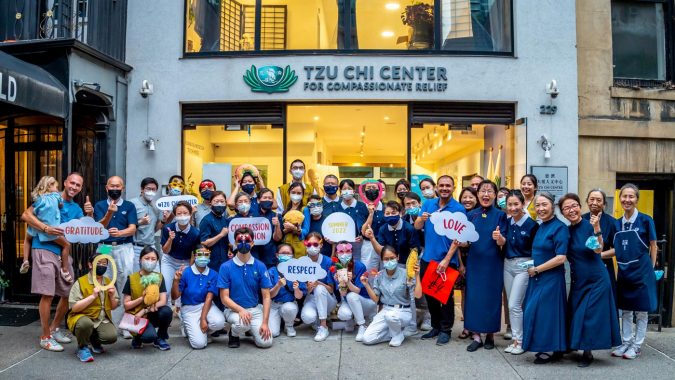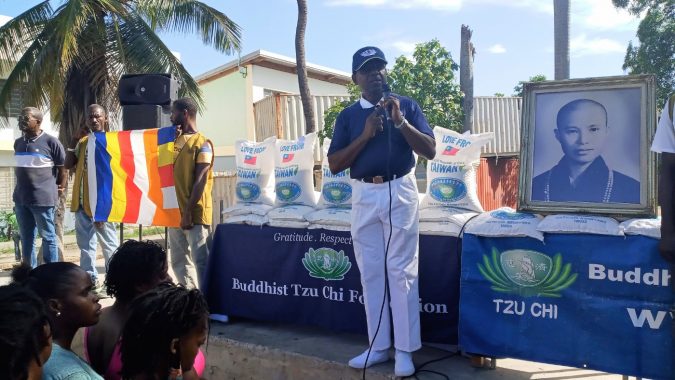
Written by Steve Chiu, Jean Lu, Nina Wu, Joy Yang, Ying Goh
Edited by Annie Kung, Shirley Yaw, Andrew Larracuente
Contributors: Cecelia Ong, Kee Hong Sio, Sarah Chu, Alex Tan, Heather Chen, Eddie Chen
In South Asia, female labor force participation remains among the lowest in the world. Studies have shown that some of the obstacles that women face when working outside of their homes are safety issues, lack of skills, hiring discrimination, and most importantly, restrictive social norms. In many rural areas, expectations for women and girls have been ingrained at an early age, restricting their education and career development. They are expected to handle house-hold chores, work longer hours than men, and refrain from communicating with others. As a result, their independence is compromised, leading to a cycle of dependency on men and an inability to make decisions.
Even though female empowerment is an admirable goal in and of itself, more traction can be gained by focusing on the outcomes of female empowerment which often lead to better physical, mental, and financial outcomes for whole families. Convincing South Asian men and boys that this kind of peaceful living happens when women and girls feel safe, are valued, and are able to pursue education and work outside the home, is the best way to combat antiquated gender based cultural norms. The paradigm shift that men and boys must make is to internalize that co-creation with women and girls aligned with cooperative family models centered on education and skills training, supports peaceful living. Men would no longer have to carry the burden of providing for their families alone and the toxic family dynamic that results from that pressure would subside. The following examples showcase best practices that Tzu Chi implements in Nepal and India to empower local women and girls through the transformation of cultures, mindsets, vocations, societal expectations, and systems.
Safety as a Pre-condition to Co-creation; “Drink Tea, Instead of Alcohol” Campaign

In many rural Indian villages, impoverished communities often face limited job opportunities. This leads them to brew and sell homemade alcohol to earn a meagre income, often as little as 50 rupees (approximately 0.60 USD). This practice fuels widespread alcohol consumption by men, leading to harmful consequences, such as domestic violence, financial instability, and various health issues. Women bear the brunt of this crisis, often enduring abuse from intoxicated partners, while struggling to keep family afloat. This creates a cycle of fear and oppression within households, disrupting family dynamics. Children, particularly girls, often struggle to focus on school, limiting their future opportunities and reinforcing restrictive societal norms.
Tzu Chi’s intervention begins with a community-centered approach that tackles alcohol addiction and also empowers women to reclaim control over their lives. Volunteers begin by conducting health checks to identify individuals, predominantly male, who struggle with alcohol, followed by repeated home visits to promote alcohol abstinence. Using visual aids and skits, volunteers educate villagers on the consequences of alcohol consumption. A key initiative “Drink Tea Instead of Alcohol” introduces an alternative habit. Individuals who pledge to quit drinking, will receive packets of masala tea, their favorite drink, as a healthier alternative. More importantly, women are actively involved in this initiative, not just as passive beneficiaries, but as agents of change. As drinking habits shift, individuals begin to experience noticeable improvements in appetite, work productivity, and overall well-being. This shift has also led to a reduction in domestic abuse, with husbands becoming more willing to share household responsibilities with women and girls, and have greater respect for women’s voices in decision-making. With greater stability at home, women and girls are able to focus on education, personal growth, and financial independence.
Beyond Tradition and Gendered Social Norms Focusing on Families and Communities
Tzu Chi supports underprivileged local communities through charitable, medical, and education initiatives. Volunteers observed that most rural homes were poorly built with fragile straw or mud walls, contain too many occupants, and lack clean water or sanitation. Rather than providing simple aid, Tzu Chi volunteers launched the cash for work program, employing local villages to help reconstruct their own homes. The new houses were thoughtfully designed for practicality while accommodating cultural traditions, and most importantly, women’s needs. Upon completion, the keys to the houses were given to the women of the household, symbolizing their ownership, decision-making power, and rising social status within their family. With their new house, a start of a vibrant new chapter is created.


Tzu Chi also utilizes several cash-for work programs and vocational training courses to support women in achieving self-sufficiency. As part of its medical mission in local communities, Tzu Chi engages local women to assist with interpretation, patient registration, and basic health checks, providing them with skills and experiences beyond household duties. Additionally, Tzu Chi trains a select group of young women in its philosophy of compassion in action, involving them in aid distributions and placing them in schools to serve as positive role models for children. Through these opportunities, women not only only contribute to their families’ financial well-being but also extend their support to others in need. Filled with hope for the future, they can begin planning for themselves and their children with a greater sense of security and purpose.
Growing a Legacy of Peaceful Living Through Education and Vocational Training
Building on the success of its initiative in India to transform the social fabric of communities for women and girls, Tzu Chi launched a vocational training program in Nepal that not only focuses on technical skills, but also on addressing underlying social inequalities for women and girls. The general population in Nepal are involved in agriculture, leaving many Nepalese communities, particularly women, lacking alternative employment opportunities. In addition to that, Nepal has predominantly been a patriarchal society, where men are considered to be the leader of the family. Women usually work harder and longer than men, taking care of their family and in doing so, causing themselves to face malnutrition and poverty. To transform this societal norm, Tzu Chi has launched various vocational training programs, from soap making, computer skills, and sewing trade, equipping women with practical skills to achieve financial independence and economic stability.
Tzu Chi first launched its vocational sewing course for women in 2022. To ensure accessibility, a community center was equipped with sewing machines, allowing students to attend classes there. Everyday, women would walk to the community center, and although they were sometimes late due to household responsibilities, they would never miss a session. Initially quiet and reserved, they gradually gained confidence, eventually wearing their own handmade outfits in local villages to attract sewing orders. Once confined at home without any skills, these women are now able to generate income to support their families and reshape societal expectations of the woman’s role in the household.

Recognizing that vocational training alone is not enough, Tzu Chi takes a holistic approach to address the systemic barriers that prevent women and girls from flourishing. Volunteers work not only to equip participants with skills, but also to shift household mindsets and expand access to job opportunities. Upon completion of their vocational training, Tzu Chi volunteers conduct home visits to continue supporting graduates in securing income-generating opportunities, while encouraging families, especially fathers, to reconsider traditional gender roles, such as early marriage.
To further empower women, Tzu Chi integrates its vocational training programs into sustainable livelihood initiatives. Every year, Tzu Chi provides essential supplies such as school uniforms, pencil cases, and backpacks to local school students. Through the cash-for-work model, women are hired to sew these materials. This way, not only can they achieve financial independence, but also build confidence within themselves. Beyond financial stability, Tzu Chi provides mentorship and education to the local community, including workshops on financial literacy, small business management, and leadership development. These initiatives help women envision a future beyond their villages and contribute meaningfully to their households, breaking the traditional expectations that their value is solely tied to domestic responsibilities.
As a result of these efforts, many women gain national sewing licenses, significantly increasing their earning potential. Their income is able to alleviate the families’ economic burden, and bring them hope and opportunities they never thought possible. Graduates are also encouraged to engage in community service, fostering a supportive network that inspires future generations. With ongoing socio-political shifts, the role and status of women in these communities continue to improve, breaking down barriers towards gender equality.


Female Empowerment Revisited; Supporting Women and Girls Builds Stronger Families and Communities
Ultimately, Tzu Chi’s approach extends beyond just providing vocational training programs for women and girls, it applies a holistic approach that builds community and resilience while breaking down societal taboos and mental barriers that prevent women and girls from flourishing. By focusing on co-creation and co-operative family models that promote peaceful living, these programs empower individuals to break free from cycles of poverty, addiction, and dependency. When women and girls succeed, they become catalysts for change, influencing their peers, creating a ripple effect that elevates the entire community. Tzu Chi’s initiatives pave the way for a future where gender equality is not just an aspiration, but a reality – one individual, one household, one village, and one generation at a time.



The empowerment for South Asian women and girls from Tzu Chi’s vocational training facilitates elevated communities and peaceful living. Photo / Buddhist Tzu Chi Foundation





